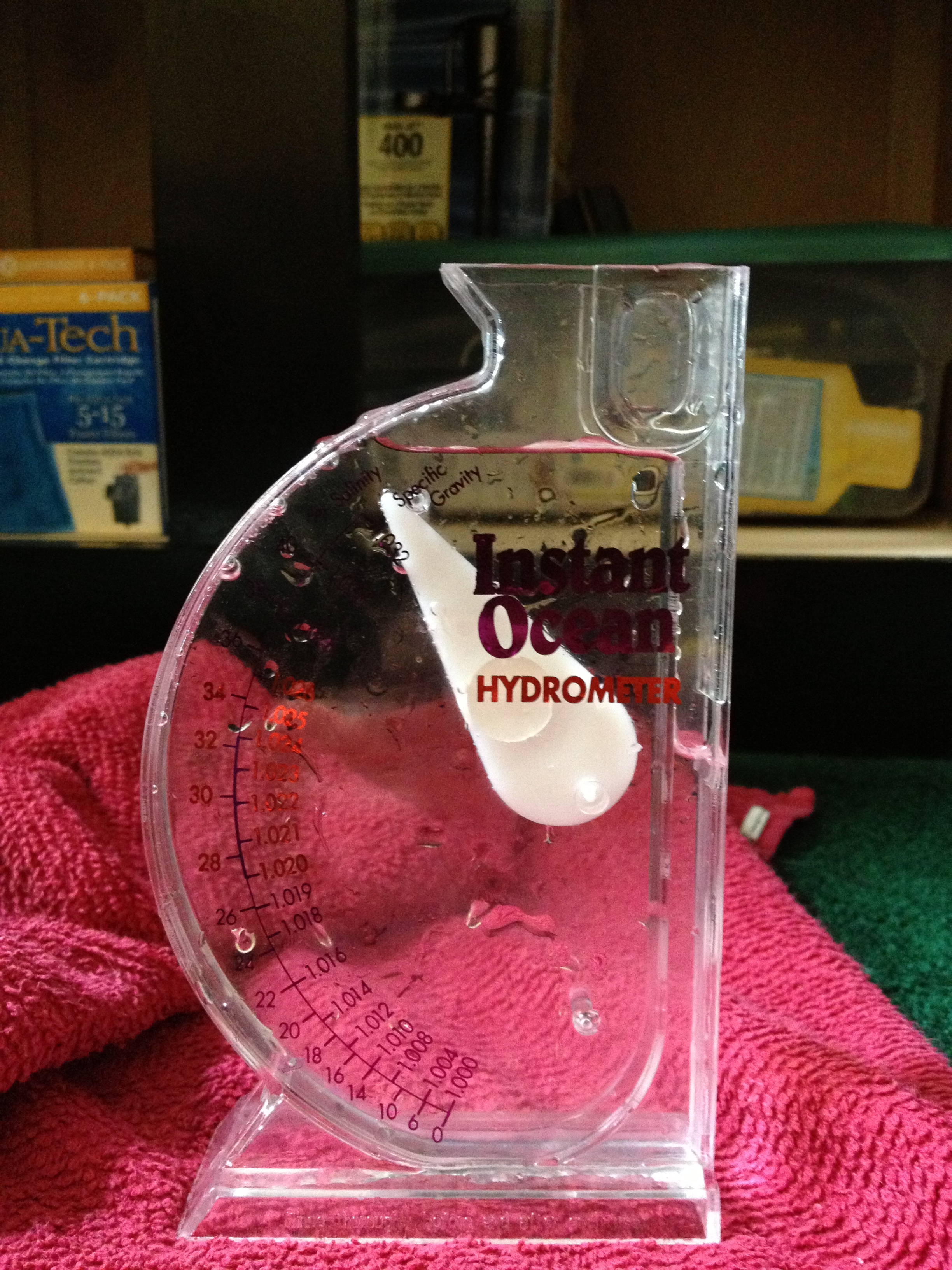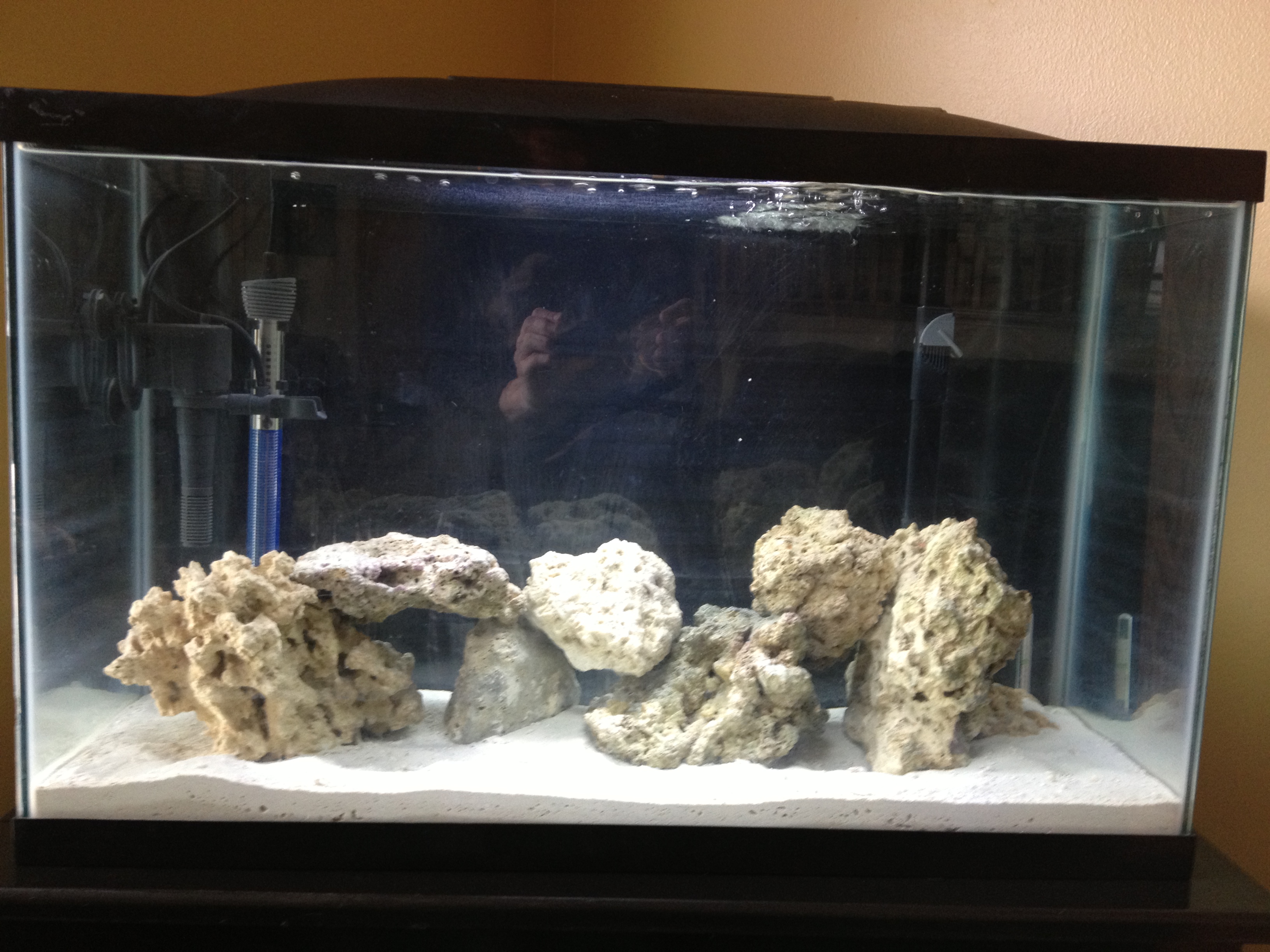soccerbo24
Member
Hey I am new to the hobby of saltwater had many successful freshwater but wanted to try saltwater! I have done a lot of research and now I have my tank all setup! it is a 29 gallon tank with 30 pounds of Natures Ocean live sand. 26 pounds of live rock from my local marine store a Marineland Bio-Wheel penguin 200 filter, a Marineland Maxi-jet 400 powerhead, a Topfin 150 Watt submergible heater, and a Marineland Hood with LED light system. I have just done my first test after 4 days of letting everything sit and letting the water clear up. I used the saltwater master test kit from API. I Think my pH is to low.. How do I fix that? my ammonia looks to be at about .25 ppm how can that go to zero? and both my nitrite and nitrate look to be good it is my first day of testing so I'm not sure if I have had any spikes in nitrite of nitrate? or if everything has settled? what do I do? it has only been 4 days so I'm pretty sure its not done cycling. also my hydrometer always reads above 1.032 it has read that everyday except one day it read 1.025 that is only day I actually got a reading and it was 2 days ago. Am I using it wrong?? what can I do to fix it if it reading 1.032 not sure? I have little bubbles at the top of the surface on the wall? is that normal? also I want to add 15 pounds of Florida reef rock to fill the tank up is that okay? do I need to clean the rock before or what?





